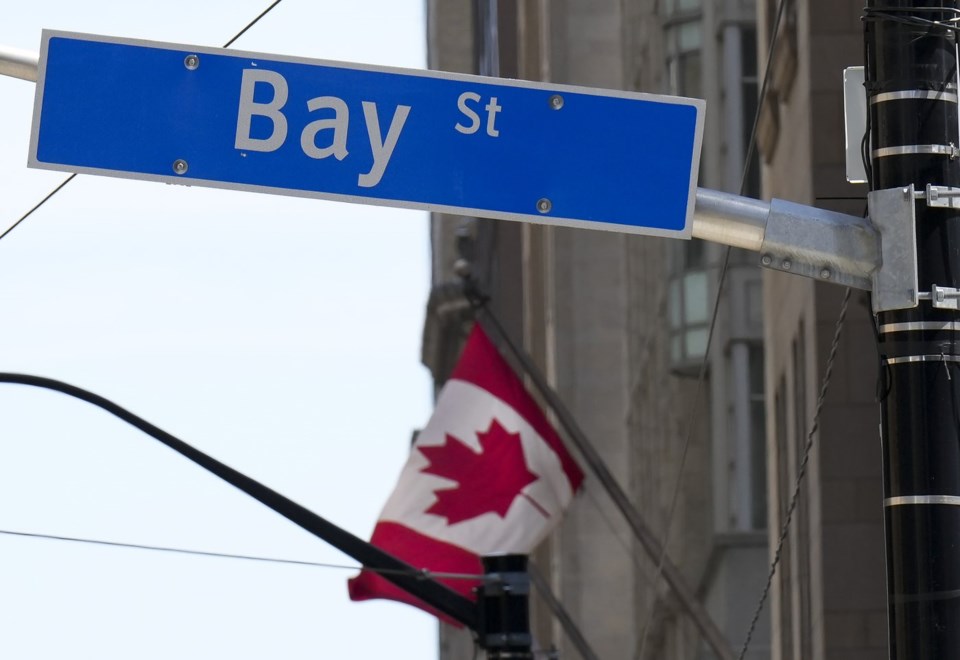As companies report their earnings for the latest quarter, they’ve fielded question after question from analysts about how they’re preparing for potential tariffs from the U.S.
President Donald Trump has threatened sweeping tariffs on imports coming from Canada, and Ottawa has said it will retaliate with tariffs of its own if that happens. The two sides are nearing the end of a truce on the duties, and it’s unclear what will happen in the coming weeks.
Here's a look at what corporate Canada is saying about the trade tensions so far.
Branching out
Several Canadian companies are eyeing other markets for their products to diversify their exports and hedge against tariffs.
Cenovus Energy said tariffs could spur a “rebalancing away from the United States” for its products.
Right now, the company’s oil shipments along the Trans Mountain Pipeline are roughly split between California and Asia, but that could change.
"We expect that would obviously drive as much volume as possible through Trans Mountain, perhaps beyond the contracted capacity, provided that volume can find a home out the dock, and then it would preferentially head globally, rather than to California," said CEO Jon McKenzie.
Meanwhile, Air Canada said it could reduce flights to some U.S. destinations if customer demand lags amid trade disruptions, and redeploy planes to domestic leisure markets instead.
Teck Resources said it expects to find other markets for some of the metals it refines in B.C. if tariffs are enacted. These include zinc, lead and certain specialty metals.
Shopping patriotically — and cautiously
Canadians have been looking to spend their money domestically in a wave of patriotism, making it a hot topic on earnings calls.
After highlighting domestic products on grocery-store shelves to help customers find them easily, Loblaw saw a “significant uplift” in sales of those products, said CEO Per Bank.
Loblaw is also among the companies warning that retaliatory tariffs will make imports — and therefore retail prices — more costly.
Canadian Tire CEO Greg Hicks said the company is reviewing its products and U.S. suppliers and looking for alternatives.
"We have already begun to try to insulate our customers from the risk of higher trade costs hitting our shelves," said Hicks.
Coffee chain Tim Hortons is also keeping a close eye on costs to try and mitigate the impact on consumers if tariffs do take hold.
Approach with caution
For some companies, the uncertainty over tariffs and trade with Canada’s biggest partner cast a shadow over outlooks.
TFI International chief executive Alain Bédard said the first half of 2025 will be tough, and held off on providing a forecast for the year, describing the situation as “very foggy.”
Bombardier also withheld a financial forecast for the year due to the uncertainty.
"We need to exercise caution until we see how this all unfolds," said CEO Éric Martel.
Other companies provided forecasts, but with the caveat that tariffs were not included in their calculations.
That was the case for RioCan Real Estate Investment Trust as CEO Jonathan Gitlin said it’s “virtually impossible” at this time to predict what’s going to happen or quantify the impact tariffs will have.
Elsewhere, auto parts maker Magna International lowered its revenue outlook for the financial year but did not take tariffs into account.
Dialogues and diplomacy
Some companies are working the phones to try and get ahead of the situation.
Imperial Oil CEO Brad Corson said he hopes diplomacy will lead to Canadian oil and gas being shielded from tariffs.
"I, along with many others, have spent a lot of time educating on both sides of the border around the unique and integral energy system that exists and how that is mutually beneficial to both countries,” said Corson.
Nutrien CEO Ken Seitz warned that U.S. farmers would be hard-hit by tariffs as they rely on the company’s potash, a key fertilizer input.
"We've had these dialogues, a lot of them, with governments on both sides of the border."
Full steam ahead
Canada's two major rail operators expressed optimism despite the uncertainty.
Keith Creel, CEO of Canadian Pacific Kansas City, said Canada, the U.S. and Mexico are heavily interdependent. Because of that, he thinks a “pragmatic approach” will ultimately prevail.
“Trump’s desire to build a stronger America, to bring jobs to America, to balance trade I think is going to be accomplished, and we’re going to see, I think, exceptional growth between the three nations,” said Creel.
Canadian National Railway CEO Tracy Robinson gave a sunny forecast for the company despite the tariff threat.
“While there may be some impact, it won’t be so significant or prolonged as to cause a recession in Canada or significant inflationary impacts in the U.S.,” she said.
Silver linings
For some companies, a trade war could actually benefit some aspects of their business.
Air freight company Cargojet sees opportunities in the new supply routes that a trade war could open up, executives said — shippers trying to avoid routing products through the U.S. because of tariffs could instead turn to options like freighter aircraft to ship straight to Canada.
Though Loblaw’s CEO warned Canada's retaliatory tariffs would raise costs for imported products, he said the company expects consumers would react by continuing to choose domestic options — including the grocer’s private-label brands.
He gave the example of household and cleaning products. Loblaw carries household and cleaning products from more than 30 U.S. vendors but also has a wide array of those products in its house brands.
“If the tariffs will be applied on household and cleaning, then of course, those products will not be competitive anymore, and all the sales will go to our control brands, and they’re all produced in Canada,” he said.
This report by The Canadian Press was first published Feb. 24, 2025.
Companies in this story: (TSX:CVE, TSX:AC, TSX:TECK.B, TSX:L, TSX:CTC.A, TSX:QSR, TSX:TFII, TSX:BBD.B, TSX:REI.UN, TSX:MG, TSX:IMO, TSX:NTR, TSX:CP, TSX:CNR, TSX:CJT)
Rosa Saba, The Canadian Press




